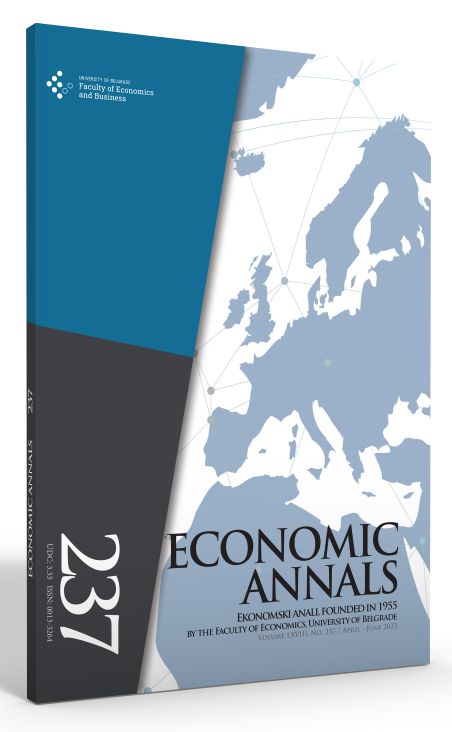Modelling the influence of financial inclusion on the remittance growth nexus in Nigeria
Modelling the influence of financial inclusion on the remittance growth nexus in Nigeria
Author(s): Sina Jimoh Ogede, Musa Olanrewaju Oduola, Olumuyiwa Ganiyu Yinusa, Lukman RaimiSubject(s): Economy, National Economy
Published by: Економски факултет Универзитета у Београду
Keywords: remittances; economicgrowth; financial inclusion; Nigeria
Summary/Abstract: In this paper, we explore the nexus between remittances and Nigeria’s economic growth over the period 1996 to 2020 from the perspective of financial inclusion (FI). The fully modified ordinary least square (FMOLS) and Granger (1969) causality methodologies were employed. The findings of the FMOLS show that the increasing flow of remittances can significantly contribute to the growth of the Nigerian economy. Also, the interaction of financial inclusion and remittances has a significant impact on the country’s development. The study concludes that the interaction of remittances with the measures of financial inclusion will lead to economic growth at a faster rate than when there is no interaction with financial inclusion. Using the Granger causality test, the study revealed that the relationship between financial inclusion and economic growth is a unidirectional one. It shows that the impact of financial inclusion on growth is conditional on remittances. Therefore, Nigeria’s authorities need to work to strengthen all existing institutional weaknesses that allow questionable transactions in financial markets and to promote a more inclusive financial sector that will reduce the number of unbanked individuals in the country.
Journal: Economic Annals
- Issue Year: 68/2023
- Issue No: 237
- Page Range: 137-163
- Page Count: 17
- Language: English

